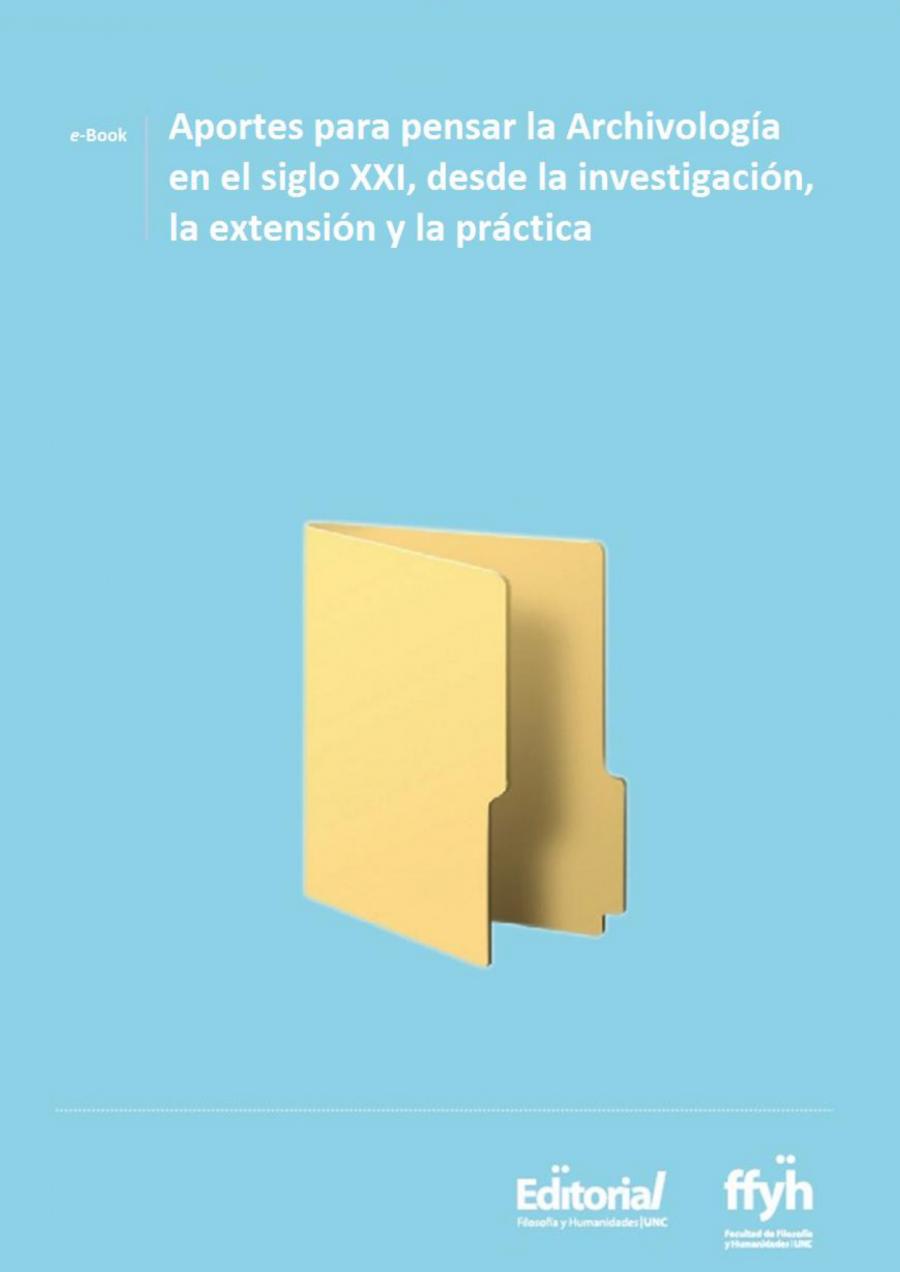Contributions to thinking about archival science in the 21st century, from research, outreach, and practice
Keywords:
archival science, university extension, research, archives - conservation and restoration, digital archives - evaluation, audiovisual documents - preservation, documentary heritage – protection, right to be forgotten - Internet, access to information - legal aspects, higher education - curricula - archival science, paleography - historical studies, ecclesiastical archives - sermons, bibliographic heritage - history - Spain, museums – archives and libraries – Córdoba (Argentina), Archival Reflection Conference (3:2013:Córdoba, Argentina)Synopsis
Archival science has undergone a radical transformation in recent decades, occupying a prominent place in both Europe and Latin America. Various factors have contributed to its scientific and professional development, including regulatory frameworks governing archives, the advancement of professional associations, the establishment of numerous institutionalized and non-institutionalized working groups at the national and international levels, and, of course, the formal introduction of archival studies in public and private universities.
The Third Conference on Archival Reflection (2013), co-organized by the Alumni Association of the School of Archival Science and the Secretariat of Research, Science, and Technology of the Faculty of Philosophy and Humanities—with the endorsement of the School of Archival Science— provided a space for meeting and reflection attended by more than a hundred teachers, professionals, and students, with the participation of more than twenty speakers from the U.N.C., CONICET, the Judicial Branch of the Province of Córdoba, the Catholic University of Córdoba, the National University of La Rioja, and representatives of R&D projects based at the International Council on Archives, UNESCO.
It was a space in which the aim was to share with the various agents in the archival field the knowledge generated in different institutions and in which everyone could give an account, in the first person, of their knowledge production processes and professional practices.
Given that the event sparked discussions and debates in the room—but also in the hallways and during coffee breaks—it was considered important to have a follow-up event to revisit the experiences shared and the results presented. Thus, the speakers were invited to contribute to this publication, as were other attendees who did not speak publicly during the meeting.
The lines of work that appear in this book are very heterogeneous and respond to different individual and/or group interests, which revolve around certain practical professional concerns, as well as theoretical reflections more closely related to scientific research, reflecting the diverse academic and professional backgrounds of the authors. In short, new and old problems are addressed, in some cases, from innovative perspectives.
The contributions revolve around the link between archives and society, the use of new technologies, the types of archives according to their format, the evaluation of digital documents, the right of access to information, the right to be forgotten on the Internet, and new curricular possibilities for the Archival Science degree program.
Likewise, there is no shortage of classic lines of work related to paleography and studies aimed at identifying and analyzing specific types of documents and their context of creation. In short, this work brings together outreach experiences with theoretical and methodological reflections and discussions related to archival science and related sciences, by both Argentine and Spanish authors.
Chapters
-
By way of introduction
-
"Cultural network of audiovisual productions made in Córdoba," an experience in outreach and interdisciplinary work
-
The importance of university outreach. Work carried out on the restoration of the Brocherian Museum Archive and Library
-
Actions for the preservation and dissemination of historical heritage. Notes on the digitization of the “Monseñor Pablo Cabrera Documentary Collection” FFyH - UNC
-
Evaluation of digital documents. Experience, approaches, and perspectives of the FIED group
-
Some notes on the “right to be forgotten” on the Internet and informational self-determination
-
The curriculum design of the University Technical Degree in Document and Archive Management (UNLaR)analysis based on Berstein's theory
-
Orality on paper. A typical type of document found in ecclesiastical archivesthe sermon
-
Contribution of the Count of Maceda to the economic management of the so-called Public Cause in 18th-century Madrid. History, administration, and documents
-
The documentary and bibliographic heritage of Cuenca Cathedral during the Middle Ages

Downloads
Published
Categories
License

This work is licensed under a Creative Commons Attribution-NonCommercial-ShareAlike 4.0 International License.


